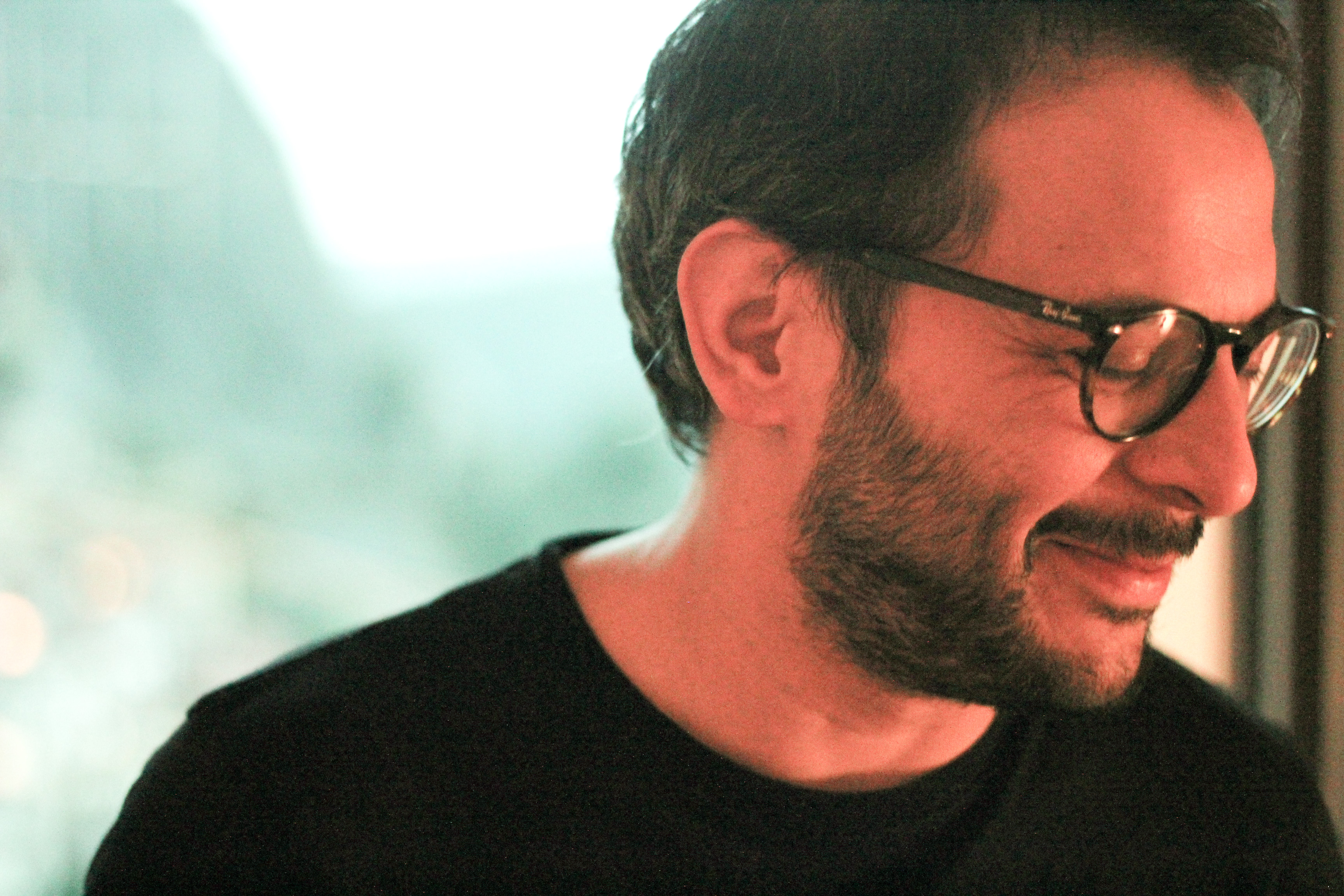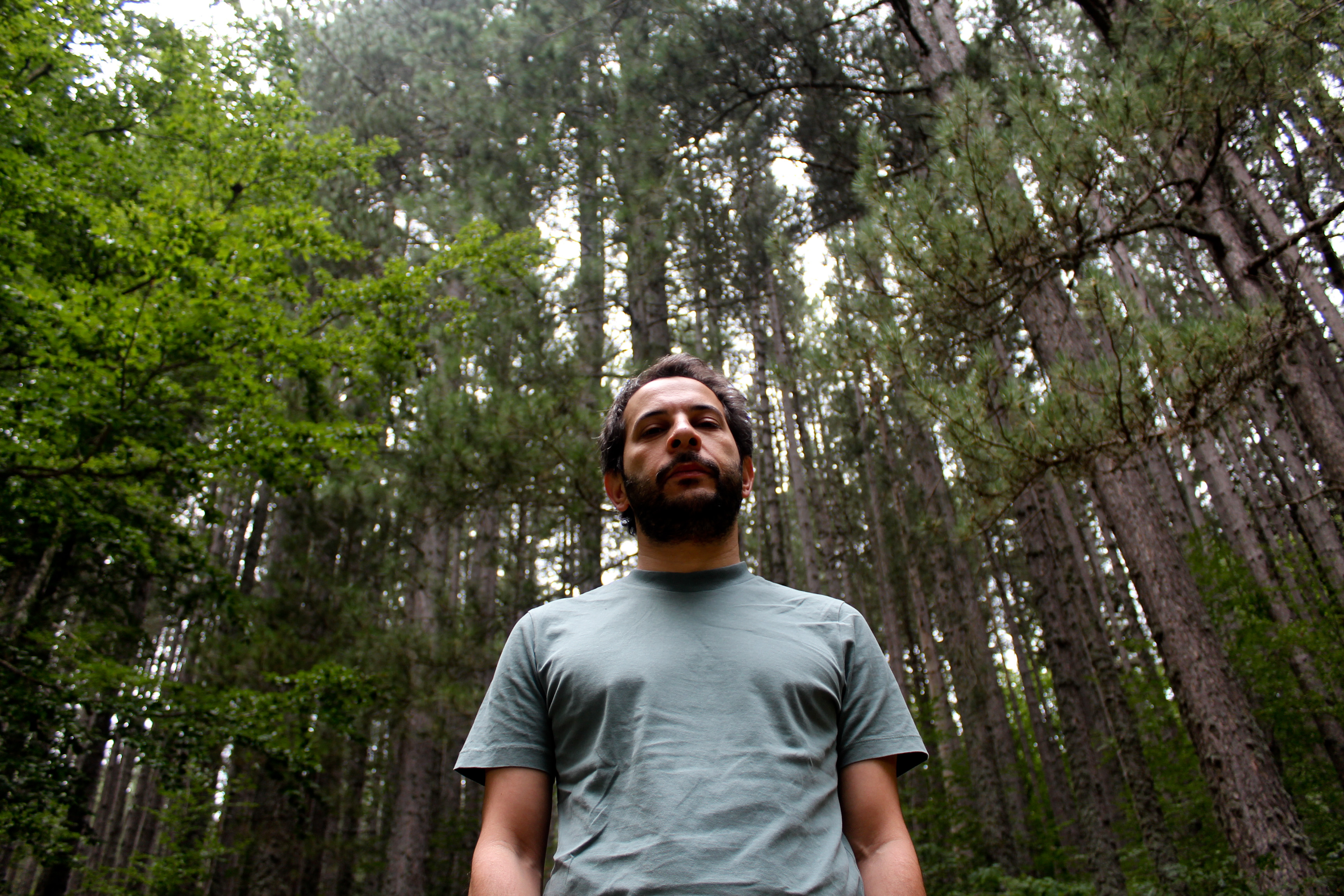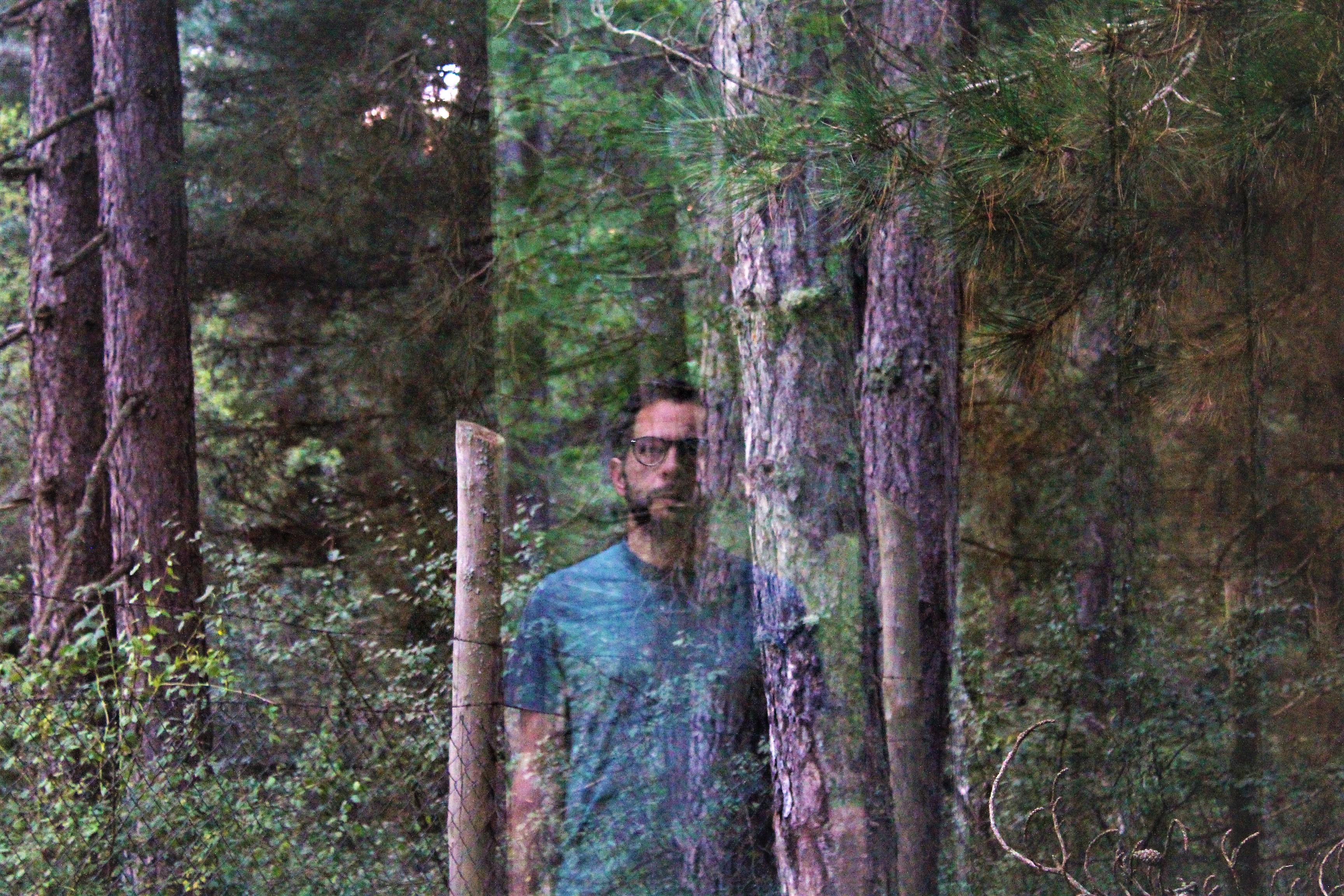Bubblin’ Up: Indian Wells
Catching up with the master of introspective melody.
Pietro Iannuzzi (a.k.a Indian Wells) makes delightfully intelligent electronic music. As with so many of the most exciting artists, his music is highly original; featuring abstract textures, brooding atmospheres, and wonderfully weird sounds, it doesn’t fit comfortably into any box or contemporary genre. But what it does do is make you feel something—melancholy, at times (see “South Beach”), but sometimes also a warm happiness or a faint nostalgia, and often so much more. It’s deeply introspective headphone music that makes you smile.
Iannuzzi, of Italian descent, began making music while at university. “A friend of mine simply showed me audio software and I started playing with it,” he explains. He sent his first demo to Rome’s Bad Panda in 2012 and saw his first release, Night Drops, later that year. Just like his chosen alias, drawn from the annual California tournament of the same name, the eight-track album referenced the sport of tennis: check out the track titles—i.e. “Wimbledon 1980,” “Deuce”—and the samples; several of the tracks were founded on Youtube clips of tennis matches. He followed this up with a sophomore LP, 2015’s Pause—which in turn was remixed by Ital Tek, Vaghe Stelle, Pixelord, and Elektro Guzzi—and a remix on Ghostly International, before 2017’s Where The World Ends album which channeled feelings of geographical, social, and political isolation across a range of artfully composed emotive electronic cuts.
More recently, Iannuzzi returned with Phase Transition, an EP dealing with “transitions, we’re told—and we thought it about time to catch up with Iannuzzi to learn more about his work and the thinking behind it.
So, congratulations on your new EP, Phase Transition. Talk to me about the ideas and inspirations behind it?
This EP came out right after my last album, Where The World Ends. Some tracks follow that kind of sound and are, in part, an appendix to that record. In these tracks, I tried to explore different ways of creating sounds and music. I favored the rhythmic parts; in general, I think they are more dynamic and faster than the previous ones.
When you say “different ways of creating sounds,” what do you mean? Did you use new techniques and gear?
I’m trying to change my way of making music and, in general, how I think when I make music. It’s not simple when you have consolidated mental mechanisms; it takes time but I think it’s necessary because repeating yourself is not fun. I also started working with analog instruments, specifically with modular synths and this allows me to understand what is behind a sound.
I understand that the EP deals with “transitions,” as the title would suggest. Can you elaborate on this?
The title comes from the fact that lately I’m looking for different paths for my music; it’s indeed a transition period. And I think this EP marks the end of a journey. I think my music will change considerably in the future.
That’s interesting. How do you envisage it changing? Is this a conscious decision?
In part it’s a choice, in part it’s the natural evolution of things. I get bored easily and I think it’s essential to explore different ways of expressing yourself by getting out of comfort zones. Maybe it does not work in the short term, and it is a less convenient solution, but giving myself this challenge allows me to keep feeling compelled to make music and to keep the flame burning.

Talk to me about your musical background. When did you begin experimenting with music production, and what inspired you to begin?
I started during the university years. I don’t have a musical background and never learned a musical instrument. A friend of mine simply showed me audio software and I started playing with it. After some time, I understood that music would be part of my life. In general, the first things I did were mostly trip-hop. Massive Attack, Portishead, Tricky were my references. Over time, my tastes have changed but Mezzanine was the record that made me discover and love electronic music.
What was it in particular that appealed about Mezzanine, and how do you try to incorporate this into your own music?
I remember it was like an earthquake for me. I had never heard anything like this, it was like discovering a new planet. Honestly, I do not even try to incorporate that sound into the things I do. But I like darker or nocturnal moods and in my opinion that record was both dark and nocturnal.
And when did your sound begin to resemble the melodic and deeply introspective music you share today?
I think I’ve always had a certain propensity for the melody. For me it is a fundamental aspect of my music; I don’t think I can do without it. Introspection is my characteristic as a person and I inevitably transpose it into the music I make.
It’s an interesting point. What do you think it is that draws introspective people to melody?
I do not know exactly. Of course, I speak for myself, but I believe that certain introspection also corresponds to sensitivity and for me sensitivity is strongly connected to the melody.

What was your first setup like?
A laptop and a lot of patience!
Do you use more gear nowadays or is your setup still rather minimal?
Now in my studio there are modular synths, a Moog, a Microkorg, a digitone, and a sp404.
What was it that drew you to music production to begin with? Did you feel an instant connection with it?
Since I am chronically lazy, I never managed to learn how to play an instrument. When I saw the first software, it seemed like something more immediate, in a less tiring way. (But with time, I’ve discovered that it’s not less difficult if you want to make things properly.)
How did your first release come about?
One day I said to myself, “Now I’m going to turn everything that I do upside-down and see that it comes out.” I sent my first demo to Bad Panda and after a short time Night Drops was born. For that record, I only had a laptop and I recorded tennis samples on YouTube.
Tennis samples. What’s the connection?
The title of my first album is Night Drops (in which the ball is hit relatively softly, and lands just over and close to the net) and Indian Wells is the name of an important tennis tournament. The track “Wimbledon 1980” is a tribute to one of the best match in the tennis history. I worked a lot on these samples, I used them like field recordings and to make rhythmic elements (kick, snare, percussions) out of the ball beat. Years later I processed some “Racquets” sounds to make the beat just for fun and in the end this one came out.
Why tennis? Do you just like the sport?
I was fan of this sport since when i was a child. Was the time of great players like Sampras, Agassi, Ivanisevic. I also played until I was 18. For me, it’s an individual sport where your mental strength is fundamental and the main opponent is yourself.
You grew up in an isolated region of southern Italy. How do you feel this has impacted your work?
I think that both introspection and melody partly derive from this, too. I was born and raised in a small village and now I live in another village in the mountains. It was also a choice because I do not like chaos and big cities. I live and grew up in the mountains, in open and often inhabited areas. This has led me to be definitely more thoughtful and probably comes out even in the things I create.
Do you think you live in the mountains because you’re more thoughtful, or do you think you’re more thoughtful because of the solitude in the mountains?
I guess I’m more thoughtful because I grew up in more or less isolated places. I am convinced that the context in which a person grows greatly influences what the person becomes—the places, the family, friends, the people you meet. We are the result of all these factors.
What else do you enjoy doing besides music? Where do you draw inspiration from?
I like reading even though I would like to find more time. Cinema, being outdoors, traveling, generally watching the things I have around.
What do you enjoy reading?
If I’m not reading my favorite writers like Italo Calvino, Stefano Benni, or Neil Gaiman, I especially enjoy reading biographies and monographs. On the music side, I really liked “Superonda” by Valerio Mattioli, on Italian literature, contemporary classical, and avant-garde music in the ’60s and ’70s.
Do you feel that your disconnect from the scene at large has impacted your work?
Not living in a big city can certainly influence certain aspects of the music. But now the connection with the rest of the world is so easy, there is the chance to collaborate with people on the other side of the world and connect with anyone. In this EP, there is a track which is a collaboration with an Australian duo, Audego. If I think about it, it seems incredible. We never met, these are the opportunities that technology offers. So I do not feel “disconnected.” I don’t feel the need then to be in a specific music scene, having to belong to something. In this sense, I’ve always felt very free.
But you’re not connected to a scene and surrounded by artists all the time. My feeling is that this makes it easier to avoid conforming to market expectations. What do you think?
It could be. Certainly, I do not have the anxiety of having to play a certain role. Or dress in a certain way. Or respect the codes of belonging to the musical world. The truth is that I never care about it. I’m interested in music.

The music you make is deeply introspective and moving. Do you find song-writing to be a cathartic process?
Absolutely, yes, it is a remarkable relief valve. With all the stress that we find ourselves these days, creating music helps me in part to elaborate the reality and partly also to detach myself from it.
How many hours a day do you spend making music?
On average about three hours a day.
Is it a full-time endeavor?
No, I have a day job as an office worker. So I can not dedicate all my time to music.
How does your music make you feel, when you listen to it?
It makes me feel like I’m dealing with something familiar but at the same time that I do not fully understand.
How much of the music that you make do you release?
Around 10 percent, maybe less.
How easy is it for you to determine whether it’s something you want to share or not?
If I make a track and after a couple of months I still listen willingly then I decide it’s good to share it. In general, it must stand the test of time.
Looking at your catalog, what’s the best representation of what you’re trying to achieve musically?
I think of “In The Streets” and “It’s Where The World Ends,” two very different tracks made at different times. Abstract, maybe not immediate, melodic but also a little “crooked.”
Artistically speaking, you excel in melody and atmosphere. What are the secrets?
I have no idea, there is no study behind it. I’ve always been a lover of ambient music and soundtracks, probably this affects to some extent. Everything happens in a natural way.
Which ambient artists, releases, and soundtracks stand out for you? What are the benchmarks?
I find it impossible not to mention Brian Eno, Music for Airports is one of my favorite records ever. Then William Basinski’s The Disintegration Loops. Lately, I’ve been listening to Mark Pritchard a lot. I’m certainly forgetting someone. To name a few recent soundtracks, I would say Arrival by Jóhann Jóhannsson and Interstellar by Hans Zimmer.
How much do you use field recordings and sampling in your work, or do you make most of the sounds yourself?
Before I used more samples, in the last album and in this EP I have greatly reduced the samples in favor of sounds I create. I keep on grabbing field recordings with my Tascam and to use them from time to time. Now I prefer to create sounds with modular synths and other analog instruments.
What is it about melancholy in music that resonates with you?
I consider melancholy an essential condition for living well. It is often confused with sadness, in fact, I have always found in melancholy a way to feel alive.
Do you think carefully about where you’re going artistically?
Yes, even if looking at the previous releases I realize I can seem rather schizophrenic. But before releasing an album or a track I think about it 10 times, I focus a lot on the quality of the output. Years later I find it quite natural to change and explore even different things. We are human, we are the result of continuous changes and evolutions, it would be difficult to calculate “an artistic journey.” I do what I like and I’m interested in the moment. There is no reasoning about what was done before if that’s what you mean.

